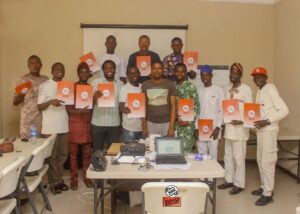So That We May Never Forget – Abayomi Odunowo.
It is a sad reality that during times of crisis, there are always individuals who seek to take advantage of the situation for their own gain. As we navigate this trying period in our nation it’s there Christmas season once again, it is important to remain vigilant and cautious in our interactions with others, particularly those who have previously exhibited opportunistic behavior.
A couple of years ago, during the Covid-19 pandemic and the Emefele currency change, many Nigerians suffered at the hands of unscrupulous individuals who exploited the situation for their own financial gain. It was disheartening to see our fellow countrymen and women fall victim to such predatory behavior. The excessive charges and unscrupulous tactics used by some businesses left many struggling to access their own hard-earned money, with some even losing their lives as a result.
It is imperative that we do not forgive those who took advantage of others during these difficult times. We must work diligently to identify and hold accountable those who engaged in such unethical practices, and ensure that they are not able to continue their exploitative behavior. By refusing to patronize their businesses and speaking out against their actions, we can send a strong message that such behavior will not be tolerated in our communities.
As we come together to support each other in this current crisis we find our. Nation, let us not forget the lessons learned from the past, and remain vigilant in protecting ourselves and our fellow citizens from those who seek to take advantage of others for their own gain.
In recent times, there has been a concerning trend of certain individuals taking advantage of the market to drive up the prices of essential goods without any valid justification. This deplorable behavior is not only unjust, but it also preys on the vulnerability of the people who rely on these goods for their daily sustenance. The sudden and arbitrary increase in prices of commodities such as Gari and cement is a clear indication of the exploitative tendencies of these individuals, and it is imperative that they are identified and held accountable for their actions.
For instance, a bag of Gari that was originally priced at N36,000 suddenly saw a substantial increase to N46,000 the next day, with the prices continuing to soar with no apparent reason. This upward trend in prices persisted, with the cost of the same bag of Gari reaching an exorbitant N70,000 within just five days. This drastic and unfounded escalation in prices is indicative of the selfish and opportunistic nature of these individuals who are willing to exploit the basic needs of the people for their own gain.
Similarly, the cost of cement has also skyrocketed from N5500 to an unjustifiable N15,000, further exacerbating the financial burden on the populace. This blatant price manipulation is a clear reflection of the unscrupulous tendencies of these individuals, and it is evident that they must be identified and held accountable for their unethical actions.
It is unacceptable that these individuals continue to exploit the market and take advantage of the vulnerability of the people. The unjustified increase in prices of essential goods such as Gari and cement not only burdens the consumers but also undermines the integrity of the market. It is essential to identify these individuals and ensure that they are not granted any leniency for their exploitative behavior.
Furthermore, it is necessary to question the morality and ethics of such individuals who are willing to profit at the expense of the basic needs of the people. The arbitrary increase in prices demonstrates a callous disregard for the well-being of the consumers and highlights the need for stringent measures to curb such predatory practices.
It is crucial that the identities of these individuals are uncovered, and they are held accountable for their actions. The exploitation of the market for personal gain is unjust and reprehensible, and it is imperative that these individuals face the consequences of their exploitative behavior.
The arbitrary increase in prices of essential commodities such as Gari, Rice, beans and even cement is a clear indication of the exploitative tendencies of certain individuals within the market. The unjustified escalation in prices not only burdens the consumers but also undermines the integrity of the market. It is essential to identify these individuals and ensure that they are held accountable for their unethical actions. The exploitation of the market for personal gain is unacceptable, and it is imperative that these individuals face the repercussions of their exploitative behavior. The people should not forgive them, and strict measures must be taken to curb such predatory practices in the future.
As we navigate through these challenging times in Nigeria, it is essential for us to pause and reflect on the values that we often overlook in our daily lives. The current situation has illuminated the importance of life itself and the fragility of human existence. It serves as a stark reminder that we should cherish and appreciate each moment we have on this earth.
Furthermore, the scarcity of food and resources during these trying times emphasizes the value of sustenance and the necessity of ensuring that everyone has access to basic necessities. It calls for a greater sense of compassion and empathy towards those who are less fortunate and in need of assistance.
Additionally, the importance of friendship and love has never been more apparent. The support and care that we provide to one another during difficult times can make a significant difference in overcoming challenges and maintaining our mental and emotional well-being.
It is imperative that we do not forget these valuable lessons once this crisis has passed. We must continue to prioritize the value of life, food, friendship, and love in our daily lives, and work towards creating a more compassionate and supportive society for all.
Otunba Abdulfalil Abayomi Odunowo
National Chairman AATSG
19th February, 2024.









